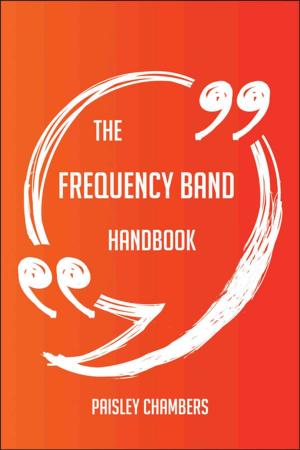The Seminole Indians of Florida - The Original Classic Edition
Nonfiction, Reference & Language, Reference, Fiction & Literature| Author: | MacCauley Clay | ISBN: | 9781486420650 |
| Publisher: | Emereo Publishing | Publication: | October 24, 2012 |
| Imprint: | Emereo Publishing | Language: | English |
| Author: | MacCauley Clay |
| ISBN: | 9781486420650 |
| Publisher: | Emereo Publishing |
| Publication: | October 24, 2012 |
| Imprint: | Emereo Publishing |
| Language: | English |
This is a new and freshly published edition of this culturally important work by Clay MacCauley, which is now, at last, again available to you.
Enjoy this classic work today. These selected paragraphs distill the contents and give you a quick look inside The Seminole Indians of Florida:
I have endeavored to present a faithful portraiture of their appearance and personal characteristics, and have enlarged upon their manners and customs, as individuals and as a society, as much as the material at my command will allow; but under the disadvantageous circumstances to which allusion has already been made, I have been able to gain little more than a superficial and partial knowledge of their social organization, of the elaboration among them of the system of gentes, of their forms and methods of government, of their tribal traditions and modes of thinking, of their religious beliefs and practices, and of many other things manifesting what is distinctive in the life of a people.
...Their locations are, severally: The first, in Monroe County, in what is called the "Devil's Garden," on the northwestern edge of the Big Cypress Swamp, from fifteen to twenty miles southwest of Lake Okeechobee; the second, in Dade County, on the Little Miami River, not far from Biscayne Bay, and about ten miles north of the site of what was, during the great Seminole war, Fort Dallas; the third, in Manatee County, on a creek which empties from the west into Lake Okeechobee, probably five miles from its mouth; the fourth, in Brevard County, on a stream running southward, at a point about fifteen miles northeast of the entrance of the Kissimmee River into Lake Okeechobee; and the fifth, on a small lake in Polk County, lying nearly midway between lakes Pierce and Rosalie, towards the headwaters of the Kissimmee River.
...It will also be observed that between twenty and sixty years of age, or the ordinary range of married life, there are 38 men and 46 women; or, if the women above fifteen years of age are included as wives for the men over twenty years of age, there are 38 men and 56 women.
...I questioned one of the Indians about having no pockets in his shirt, pointing out to him the wealth in this respect of the white man's garments, and tried to show him how, on his shirt, as on mine, these convenient receptacles could be placed, and to what straits he was put to carry his pipe, money, and trinkets.
...One night, as Lieutenant Brown and I sat by the campfire at Täl-la-häs-ke's lodge-the larger boys, two Seminole negresses, three pigs, and several dogs, together with Täl-la-häs-ke, forming a picturesque circle in the ashes around the bright light-I heard muffled moans from the little palmetto shelter on my right, under which the three smaller boys were bundled up in cotton cloth on deer skins for the night's sleep.
This is a new and freshly published edition of this culturally important work by Clay MacCauley, which is now, at last, again available to you.
Enjoy this classic work today. These selected paragraphs distill the contents and give you a quick look inside The Seminole Indians of Florida:
I have endeavored to present a faithful portraiture of their appearance and personal characteristics, and have enlarged upon their manners and customs, as individuals and as a society, as much as the material at my command will allow; but under the disadvantageous circumstances to which allusion has already been made, I have been able to gain little more than a superficial and partial knowledge of their social organization, of the elaboration among them of the system of gentes, of their forms and methods of government, of their tribal traditions and modes of thinking, of their religious beliefs and practices, and of many other things manifesting what is distinctive in the life of a people.
...Their locations are, severally: The first, in Monroe County, in what is called the "Devil's Garden," on the northwestern edge of the Big Cypress Swamp, from fifteen to twenty miles southwest of Lake Okeechobee; the second, in Dade County, on the Little Miami River, not far from Biscayne Bay, and about ten miles north of the site of what was, during the great Seminole war, Fort Dallas; the third, in Manatee County, on a creek which empties from the west into Lake Okeechobee, probably five miles from its mouth; the fourth, in Brevard County, on a stream running southward, at a point about fifteen miles northeast of the entrance of the Kissimmee River into Lake Okeechobee; and the fifth, on a small lake in Polk County, lying nearly midway between lakes Pierce and Rosalie, towards the headwaters of the Kissimmee River.
...It will also be observed that between twenty and sixty years of age, or the ordinary range of married life, there are 38 men and 46 women; or, if the women above fifteen years of age are included as wives for the men over twenty years of age, there are 38 men and 56 women.
...I questioned one of the Indians about having no pockets in his shirt, pointing out to him the wealth in this respect of the white man's garments, and tried to show him how, on his shirt, as on mine, these convenient receptacles could be placed, and to what straits he was put to carry his pipe, money, and trinkets.
...One night, as Lieutenant Brown and I sat by the campfire at Täl-la-häs-ke's lodge-the larger boys, two Seminole negresses, three pigs, and several dogs, together with Täl-la-häs-ke, forming a picturesque circle in the ashes around the bright light-I heard muffled moans from the little palmetto shelter on my right, under which the three smaller boys were bundled up in cotton cloth on deer skins for the night's sleep.















